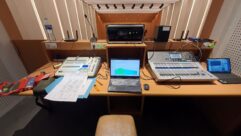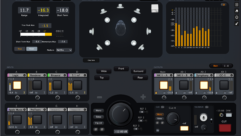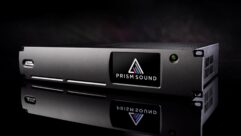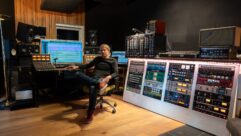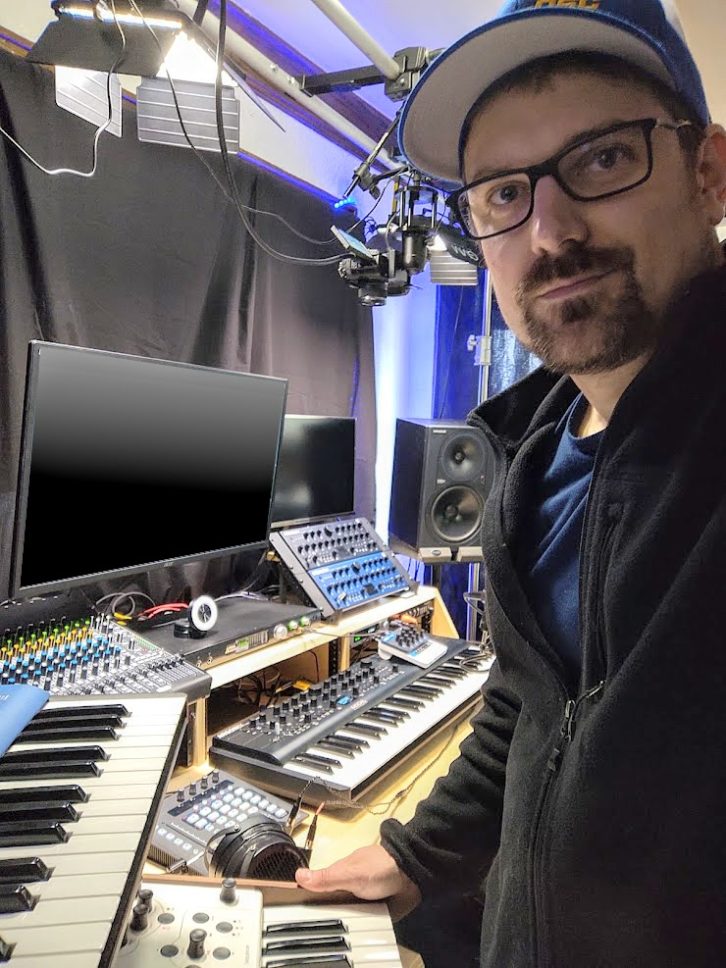
James High, Marketing Specialist and sound designer for synthesiser manufacturer Modal Electronics, has made a Prism Sound Titan audio interface the centrepiece of his recording studio because he is so impressed with the audio quality it delivers.
From his studio in Milwaukee, Wisconsin, High produces engaging video content around Modal technology and helps to design factory pre-sets for all of Modal’s upcoming synthesisers. The Prism Sound Titan is a recent addition to his equipment line-up, which also includes a Mackie VLZ4 1604 mixer.
“I had no idea how good Titan was until I got one into my studio,” James explains. “All the reviews I read about Prism Sound products agree that they are unsurpassed, but once I learned more about the company and its expertise in converters, especially clocking, buying a Prism Sound unit made even more sense and I couldn’t be happier with the results I am achieving.”
High’s work for UK manufacturer Modal has included pre-set designs for the company’s ARGON8 synthesiser, which was released in 2019 with the aim of delivering immediately recognisable Modal sounds that cut right through the mix. He has also designed factory pre-sets for the company’s latest synth, the COBALT8, and put together 30 second demo songs of COBALT8 for use in a video commercial.
Having access to the highest quality audio conversion is key to High’s sound design work and this is why he wanted a Prism Sound unit for his own studio. After researching various units he chose a Titan multitrack interface with a built-in digital mixer that can be configured to provide a range of ultra low latency feeds, including stereo and surround outputs. Titan’s flexible expansion path and connectivity to a wide range of computers via a standard USB connection was also appealing, along with the option of adding ProTools HDX and Dante modules if he ever needed them in the future.
“Over the years I’ve noticed that, with other interfaces, there is always a drastic difference between live monitoring a synth on the interface and listening to it after I’ve recorded it,” High says. “Something gets lost in the conversion and it sounds flattened and bland, as though it has lost all its energy. But when I recorded with Titan, the first thing I noticed was the quality I was getting out of the A/D converters. It was unbelievable. It’s the first time I’ve ever used an interface where there was no discernible difference between live monitoring and the recorded end result. I cannot begin to stress just how good things sound going through this interface.”
In his studio High brings all hardware synths into his Mackie mixer and puts 8 channels post EQ/Fader into the Titan’s 8 inputs. He then loops back via S/PDIF to capture audio directly from the synths or, if necessary, from the DAW output.
“Recording on the Titan is very low latency and it’s rock solid on a Mac,” he adds. “Getting results is easy. Sound Design is often done with live monitoring engaged but recording the sounds at the highest possible quality ensures Modal synths sound their absolute best at all times, in any of our videos and sound demos.”
For more information about Modal Electronics, please visit:
www.modalelectronics.com
-ends-
About Prism Sound
Founded in 1987, Prism Sound manufacture professional digital audio equipment for the international broadcast, film and music production sectors. The company’s products are renowned for their exceptional audio quality and are the converters and interfaces of choice for many of the world’s top artists, producers, composers, mixing and mastering engineers. They are also the mainstay of many internationally acclaimed audio facilities including Metropolis Studios, Sony, ESPN, the Library of Congress and Walt Disney. Prism Sound also produces SADiE audio production workstation software, which is used by major national broadcasters such as the BBC and Radio France, as well as many of the world’s leading mastering houses and classical and live music recording engineers.


